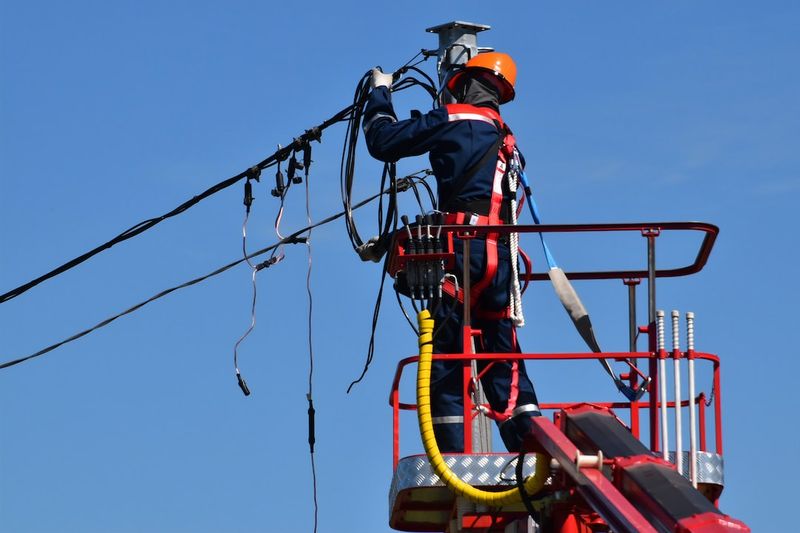Table of Contents
IMF Should Help Pakistan Uphold Right to Electricity
Introduction
August 31, 2023 | Dispatches
The recent widespread protests in Pakistan against a hike in electricity prices have highlighted the urgent need for economic reforms and social protection measures. As Pakistan faces one of the worst economic crises in its history, it is crucial for the International Monetary Fund (IMF) to play a role in safeguarding the right to electricity and ensuring that the transition away from fossil fuel subsidies promotes rather than erodes social and economic rights.
The Context
The price hike in electricity was approved by the government as part of a US$3 billion deal with the IMF, aimed at stabilizing the country’s economy. However, this has put millions of people’s rights to health, food, and an adequate standard of living at risk. The failure of successive governments to reform the energy sector has contributed significantly to the crisis.
Removing Fossil Fuel Subsidies
The removal of fossil fuel subsidies is a necessary step to alleviate economic burdens on governments and reduce dependence on fossil fuels. However, it is crucial to ensure that this transition is accompanied by a comprehensive reform plan to mitigate the impact of price increases and facilitate the transition to sustainable energy sources.
Promoting Social Security and Access to Electricity
Removing subsidies without adequate investment in social security can disproportionately affect low-income individuals and hinder their access to essential goods and services. To address this, a system of universal social protection should be introduced, providing benefits to vulnerable groups such as children, older people, and people with disabilities. Universal systems have been proven to be more effective than those based on socioeconomic status. The IMF, which has long championed universal systems, should encourage and support the implementation of such programs in Pakistan.
Philosophical Discussion
The right to an adequate standard of living, as defined by Human Rights Watch, includes access to sufficient, reliable, safe, clean, accessible, and affordable electricity. This right should be upheld without discrimination. By upholding this right, governments can ensure that individuals are empowered to lead dignified lives and have the opportunity to fulfill their potential.
The Intersection of Climate Change and Human Rights
The transition away from fossil fuels is not only essential for addressing the climate crisis but also for respecting the rights of individuals. Fossil fuel subsidies artificially reduce the costs of production and use of fossil fuels, driving dependence on them at a time when governments should be prioritizing renewable energy sources. By phasing out subsidies and investing in sustainable energy, governments can promote both environmental sustainability and economic and social rights.
The Role of the IMF
The IMF has a key role to play in supporting countries like Pakistan in their economic reforms. It should prioritize a rights-respecting approach that takes into account the impact of these reforms on vulnerable populations. A thorough assessment of the adjustments and their potential consequences should be undertaken to minimize any negative implications.
Editorial and Advice
A Warning Light for Pakistan‘s Government and the IMF
The recent protests in Pakistan should serve as a warning light for both the government and the IMF. It is imperative that these protests are not dismissed as isolated incidents but rather as a reflection of the broader economic and social challenges faced by the country. Ignoring these protests would deepen the existing crisis and undermine the rights of millions of Pakistanis.
A Call for Comprehensive Reforms
To address the ongoing crisis and ensure the right to electricity for all, the Pakistani government and the IMF must work together to implement comprehensive reforms. These reforms should include a phased approach to the removal of subsidies, a focus on investing in sustainable energy, and the introduction of universal social protection programs.
Investing in Sustainable Energy
Pakistan should prioritize investments in renewable energy sources to reduce its dependence on fossil fuels. This would not only contribute to mitigating climate change but also create opportunities for job growth and innovation in the clean energy sector. The government, with the support of the IMF, should develop a long-term plan to transition to sustainable energy sources while ensuring that the most vulnerable are not left behind.
Universal Social Protection
The introduction of a system of universal social protection would provide a safety net for those most affected by the removal of subsidies. This system should prioritize those at heightened risks of income insecurity, such as children, older people, and people with disabilities. By implementing universal social protection measures, Pakistan can ensure that the economic reforms are fair and inclusive.
Conclusion
The protests in Pakistan against the hike in electricity prices should serve as a wake-up call for the government and the IMF. Upholding the right to electricity and promoting economic and social rights should be at the forefront of their agenda. By implementing comprehensive reforms, investing in sustainable energy, and introducing universal social protection programs, Pakistan can create a more equitable and sustainable future. The time for action is now.

<< photo by Антон Дмитриев >>
The image is for illustrative purposes only and does not depict the actual situation.
You might want to read !
- Kuwait’s Bidun Children: Overcoming Discrimination for Educational Equality
- “Surging Repression: Afghanistan’s Devastating Descent under Taliban Rule”
- Ethiopia’s Amhara Region: Navigating a Turbulent Storm
- Journalistic Imprisonment: A Year of Captivity in Burundi
- The Persecution of Press Freedom in Burundi: One Year Too Long
- Silencing the Truth: Kyrgyzstan’s Assault on Press Freedom
- Kosovo’s Failures: A Systemic Neglect of Domestic Violence Victims
- The Resilience of Spanish Women Soccer Players: Shedding Light on the Crisis of Abuse
- Bringing Light to the World: Inspiring Good News Stories from July/August